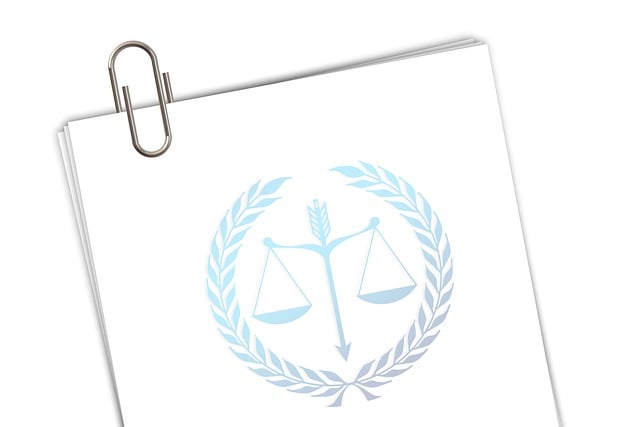RF Regulatory Agency investigations ensure global radiocommunication standards through comprehensive assessments of client non-compliance. Sentencing guidelines, crucial in these processes, determine penalties based on violation severity, intent, and mitigating factors, ensuring fairness and consistency in white-collar defense cases. These guidelines significantly impact penalties, financially and reputationally, with severe or repeated violations incurring substantial fines and license revocations, while first-time offenses may result in warnings. By adhering to these standards, businesses can mitigate legal risks, build trust, and foster a balanced regulatory environment. Understanding and proactively navigating sentencing guidelines is essential for RF licensees to minimize legal exposure and maintain operational efficiency within regulatory frameworks, ultimately affecting how penalties are determined.
“RF Regulatory Agency investigations are crucial in ensuring compliance with radio frequency (RF) standards. This article delves into the intricacies of these inquiries, focusing on understanding the process and its implications. We explore the role of sentencing guidelines in shaping RF compliance, analyzing their impact on penalties for businesses and individuals. Furthermore, we present strategies for licensees to mitigate risks. Additionally, we discuss how sentencing guidelines influence future compliance behaviors, highlighting the dynamic relationship between guidelines and penalty outcomes.”
- Understanding RF Regulatory Agency Investigations
- The Role of Sentencing Guidelines in RF Compliance
- Impact of Penalties on Businesses and Individuals
- Mitigating Risks: Strategies for RF Licensees
- How Do Sentencing Guidelines Influence Future Compliance?
Understanding RF Regulatory Agency Investigations

RF Regulatory Agency Investigations are a critical aspect of ensuring compliance with radiocommunication standards and policies worldwide. These investigations encompass a wide range of activities, from initial complaints and reporting to thorough examinations of suspected non-compliance by both corporate and individual clients. The process involves all stages of the investigative and enforcement process, meticulously gathering evidence, analyzing technical aspects, and evaluating legal frameworks.
The sentencing guidelines play a pivotal role in determining penalties for violations. These guidelines are designed to ensure fairness and consistency in how regulatory agencies approach white-collar defense cases. By considering factors such as the severity of the infraction, the intent behind it, and any mitigating or aggravating circumstances, these guidelines help maintain the integrity of the regulatory framework while offering a structured approach to penalty assessment.
The Role of Sentencing Guidelines in RF Compliance

Sentencing guidelines play a crucial role in RF (Radio Frequency) regulatory compliance, shaping the penalties imposed on non-compliant businesses across the country. These guidelines act as a framework for judges to determine sentences, ensuring consistency and fairness in enforcement actions. They consider various factors, including the severity of the violation, prior offenses, and any mitigating or aggravating circumstances. This structured approach helps maintain the balance between holding entities accountable for their actions and promoting adherence to RF regulations throughout all stages of the investigative and enforcement process.
Understanding how sentencing guidelines affect penalties is essential for businesses navigating RF compliance. By adhering to these standards, companies can mitigate potential legal consequences and demonstrate a commitment to ethical practices. This proactive approach not only fosters trust with regulatory bodies but also ensures that any penalties meted out are proportionate to the infraction, promoting a more effective and just enforcement system across the respective business sectors.
Impact of Penalties on Businesses and Individuals

Penalties imposed by RF Regulatory Agencies can have a profound impact on businesses and individuals alike, with severe financial repercussions and potential reputational damage. The sentencing guidelines play a crucial role in shaping these penalties, determining not just the monetary fines but also restrictions on operations and future business prospects. For businesses, a significant fine or licensing revocation can cripple their financial health, disrupt supply chains, and hinder growth strategies.
In cases of white-collar offenses, achieving extraordinary results through winning challenging defense verdicts becomes paramount. Skilled legal representatives leverage the sentencing guidelines to negotiate favorable terms, ensuring that penalties are proportionate to the offense while protecting the client’s interests. This strategic approach allows for a balance between holding offenders accountable and providing a fair outcome, ultimately fostering a more balanced and effective regulatory environment.
Mitigating Risks: Strategies for RF Licensees

RF licensees face stringent regulations to ensure safe and responsible use of radio frequency (RF) technologies. To mitigate risks, it’s crucial for them to stay informed about evolving laws and sentencing guidelines that can significantly affect penalties. Understanding how these guidelines impact white collar and economic crimes is essential for both corporate and individual clients.
Strategic compliance measures, including regular audits, robust internal controls, and transparent documentation, can contribute to a complete dismissal of all charges in the event of an investigation. By proactively adopting these practices, RF licensees not only minimize legal exposure but also foster trust among stakeholders, ensuring sustained operational efficiency within regulatory parameters.
How Do Sentencing Guidelines Influence Future Compliance?

Sentencing guidelines play a significant role in shaping future compliance within the RF regulatory landscape. These guidelines, designed to be consistent and fair, provide clear expectations for penalties based on the severity of infractions. For instance, severe or repeated violations often result in substantial fines and potential license revocations, serving as a strong deterrent for non-compliance. Conversely, first-time or minor offenses might lead to lighter sanctions, such as warnings or reduced fees, encouraging companies to uphold regulatory standards proactively.
The impact extends beyond individual cases, influencing the overall compliance culture. Companies facing high-stakes investigations are more likely to strengthen internal controls and ethics programs to avoid stringent penalties and maintain their reputation. In some instances, a cooperative attitude during investigations can lead to mitigated sentences, including the complete dismissal of all charges for white-collar and economic crimes, fostering a sense of accountability while promoting proactive compliance measures.
RF Regulatory Agency investigations carry significant weight, and understanding the role of sentencing guidelines is crucial for maintaining compliance. These guidelines play a pivotal part in determining penalties, which can have substantial impacts on businesses and individuals alike. By recognizing the influence of these guidelines, entities can proactively mitigate risks and develop strategies to ensure future adherence to RF regulations. Ultimately, staying informed about sentencing dynamics can help navigate potential legal challenges and foster a culture of responsible radio frequency usage.






